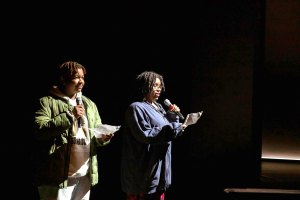Arts & Culture
-

Voice of a generation? Dylan’s is much more than that.
Classics professor who wrote ‘Why Bob Dylan Matters’ on the challenge of capturing a master of creative evasion
-

Holiday treats from the kitchen of Julia Child
Recipes from celebrity chef’s archive at Radcliffe
-

How a ‘guest’ in English language channels ‘outsider’ perspective into fiction
Laila Lalami talks about multilingualism, inspirations of everyday life, and why she starts a story in the middle
-
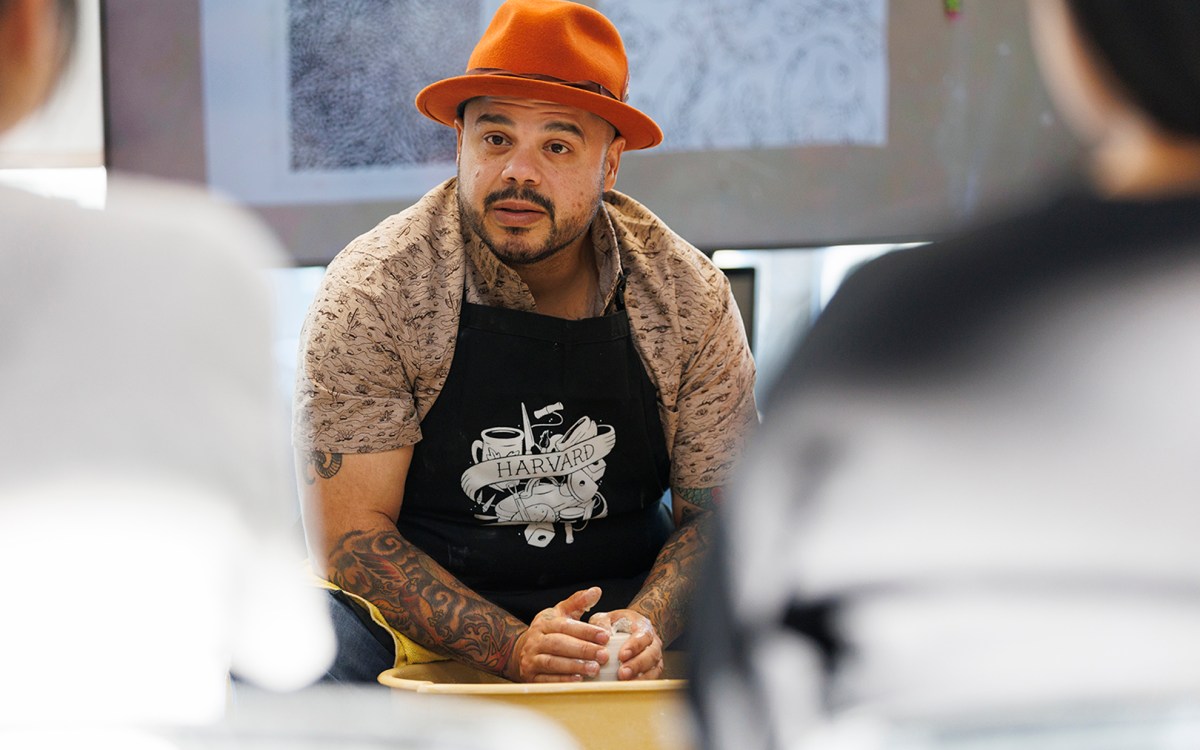
Potter gets fired up about helping students find their own gifts
Roberto Lugo says his art creates conversations and ‘that’s where the magic happens’
-
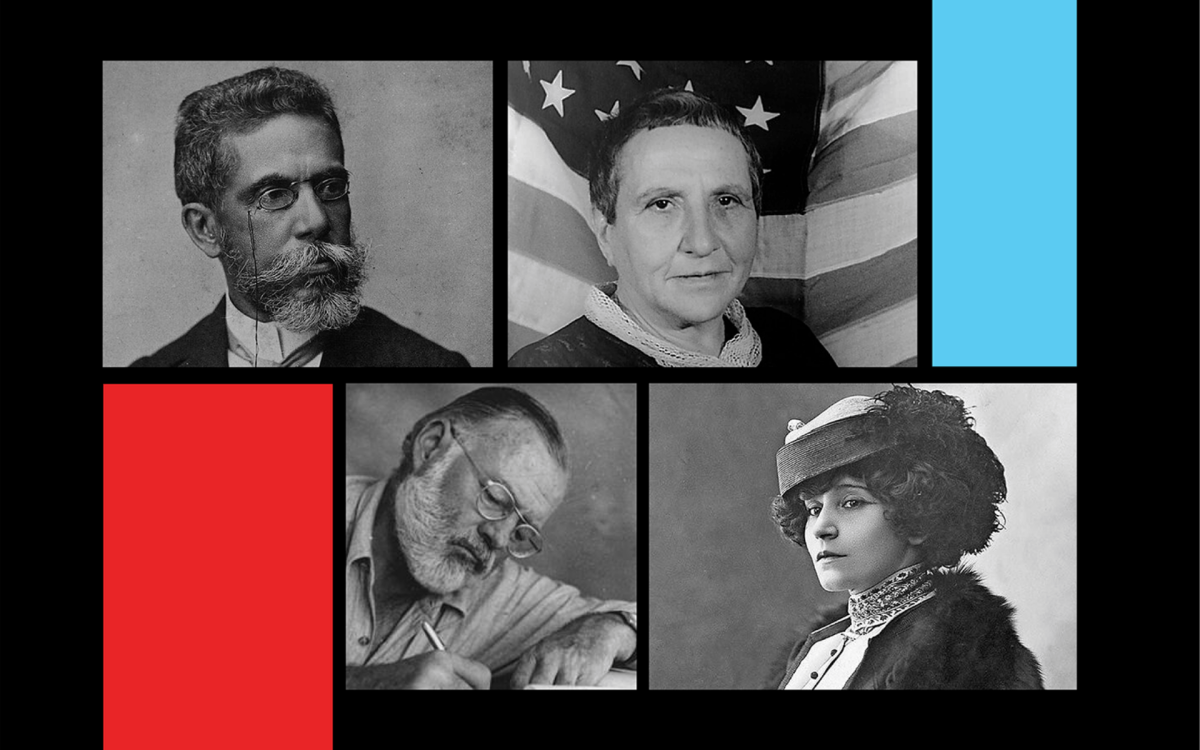
The 20th-century novel, from its corset to bomber jacket phase
In ‘Stranger Than Fiction,’ Edwin Frank chose 32 books to represent the period. He has some regrets.
-
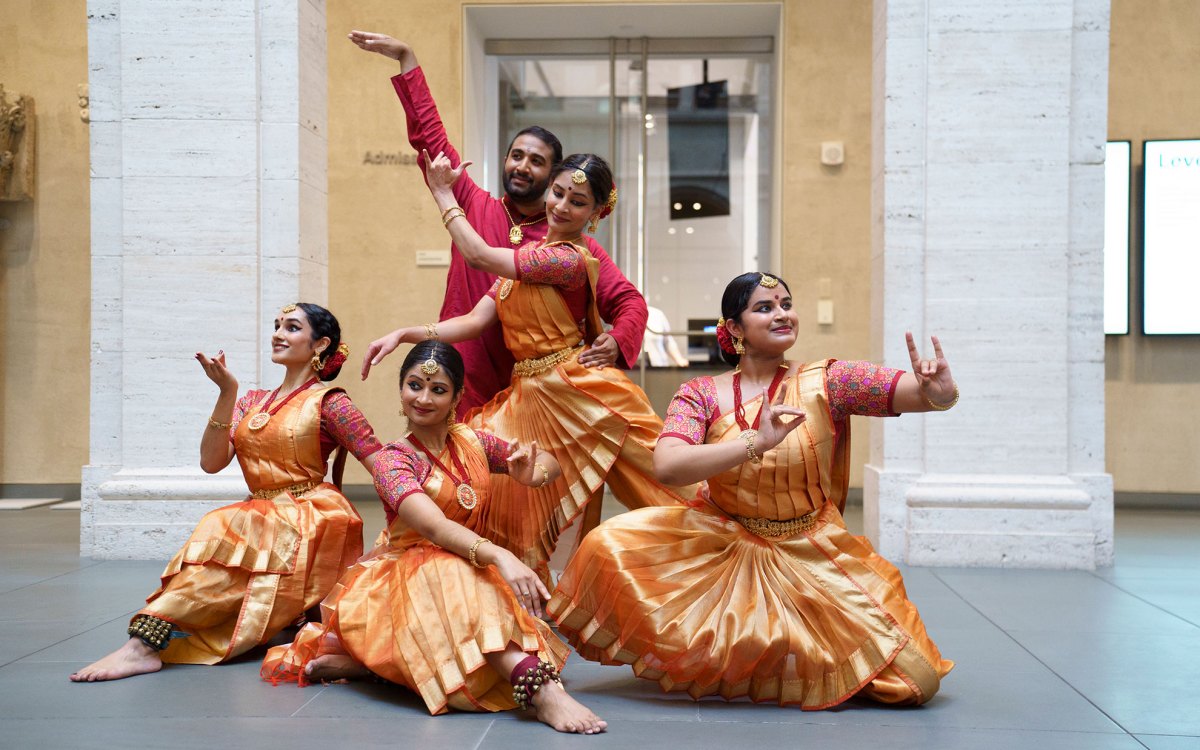
Dance the audience can feel — through their phones
Engineer harnesses haptics to translate movement, make her art more accessible

-
Old music new again
The Music Department honored Thomas Forrest Kelly’s longtime contributions to the study of chant and performance practice with a conference called “City, Chant, and the Topography of Early Music.”
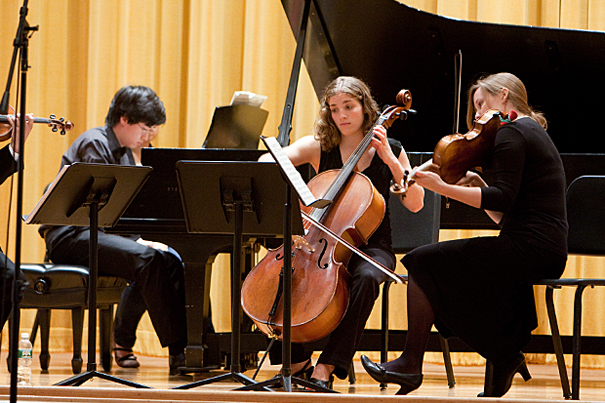
-
Updike papers acquired by Houghton Library
Harvard University has acquired a massive treasure trove of papers from one of its most famous literary graduates, John Updike ’54, the multifaceted novelist, short-story writer, poet, and critic who died last January.
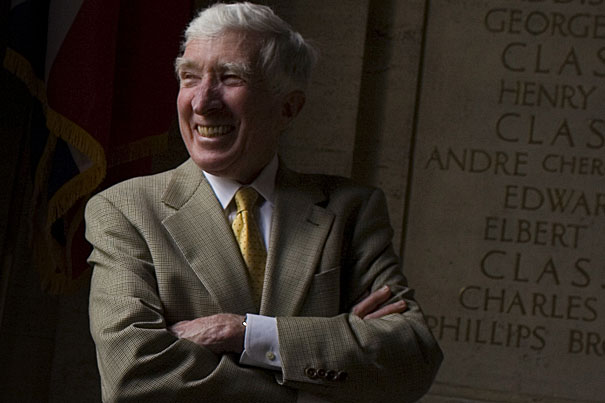
-
Practice of Adaptive Leadership: Tools and Tactics for Changing Your Organization and the World
Business is about adapting and acting — and in an uncertain world, these authors prove that if you want to be a leader, you’ve got to have skills.
-
The Pursuit of Perfect: How to Stop Chasing Perfection and Start Living a Richer, Happier Life
This alumnus and Continuing Ed professor says embracing the highs and lows of being human leads to happiness. So leave your android perfection behind and get real.
-
Government by Contract: Outsourcing and American Democracy
This thoughtful tome assesses the growth of government and subsequent outsourcing of work to private organizations. Freeman and Minow dig deep and ask: What’s efficient and who’s accountable?
-
The story from beginning to end
Norton Greenberger, a gastroenterologist at Brigham and Women’s Hospital and clinical professor of medicine at Harvard Medical School, has written a book about the hidden world of digestion — and no holds are barred.
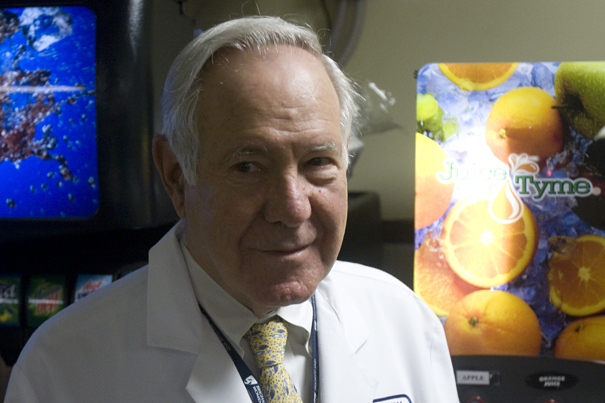
-
What a set of pipes
Over the next few years two new organs will take the place of the iconic C.B. Fisk organ in Appleton Chapel. The solution will help the church solve a long-standing musical dilemma.
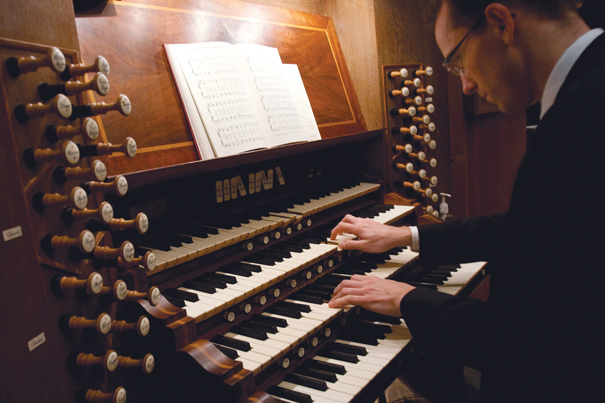
-
HDS and the Civil War scholar
Harvard President Drew Faust served as guest lecturer for a Harvard Divinity School class, where she discussed her most recent book.
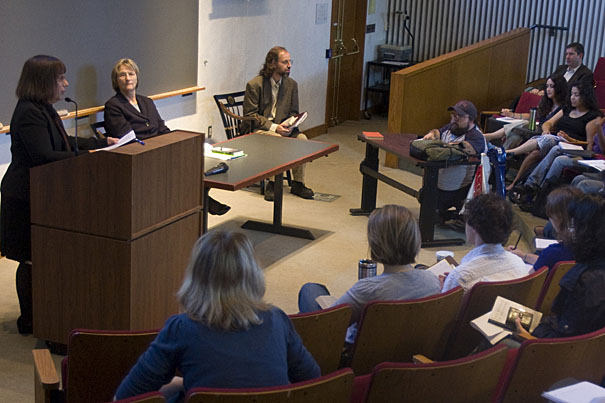
-
Practice, education, activism
The Graduate School of Design at Harvard celebrates one of its own, the late J. Max Bond Jr., a pioneering architect.
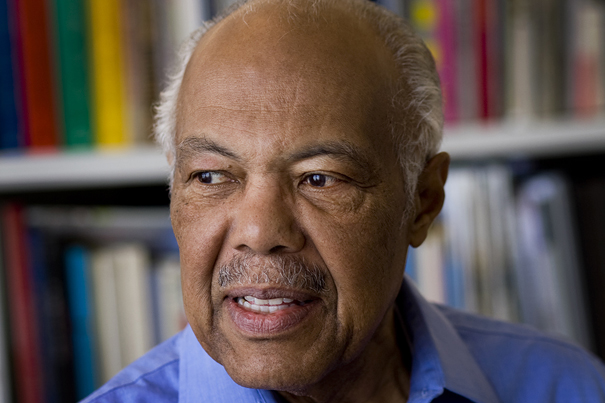
-
Made in America
The Humanities Center at Harvard is staging a symposium this weekend on the publication of the 1,095-page “A New Literary History of America” (Belknap Press of Harvard University Press 2009). A centerpiece of the symposium was today’s (Sept. 25) “20 Questions” panel with the book’s editors, Greil Marcus and Werner Sollors.
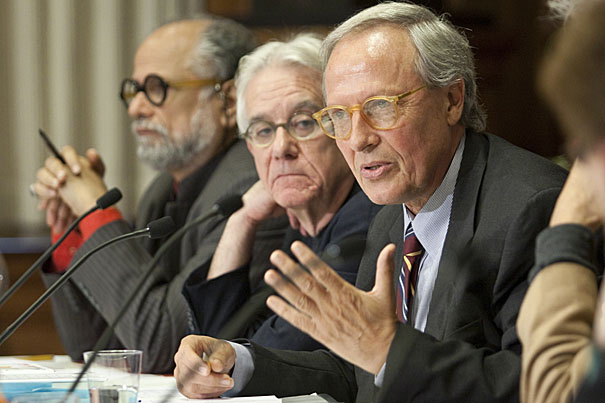
-
‘Second lives’
In the first of six Norton Lectures, Nobel Laureate Orhan Pamuk investigates the act of novel reading and the fleeting “second lives” readers acquire.
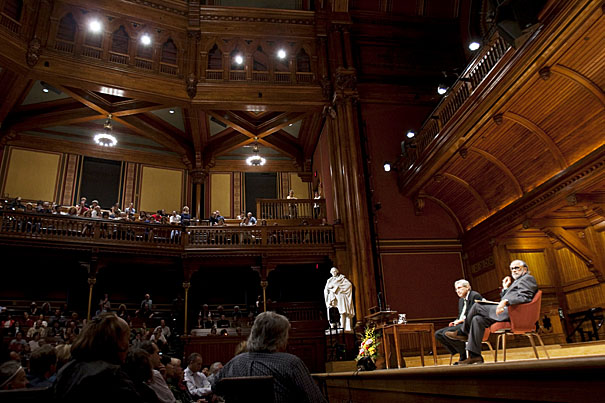
-
A New Literary History of America
This compilation of original essays features a myriad of voices from Harvard. Ingrid Monson, Peter Sacks, Cass Sunstein, Helen Vendler, and others take on Americana’s finest: porn, country music, and J.D. Salinger.
-
Close Calls with Nonsense: Reading New Poetry
In 30 essays Burt serves up literary criticism like you’ve never seen it before — his charming, excited prose unknots the web or poetry and knits a tapestry.
-
The Adventures of an IT Leader
Austin and Co. team up to create Jim, a fictional IT manager, who stumbles in his first-year duties only to (what else?) save the day. You’ll never look at your computer guy — or gal — the same way again.
-
On Rumors
Rumors affect political outcomes, tarnish reputations, even ruin lives. Cass R. Sunstein delivers this treatise on how misinformation is easily accepted and rapidly spread, and how, in the Internet age, some stories can’t be undone.
-
The sound of summer music
The musically inclined are drawn to Harvard from near and far each summer. They come together to create the sound of music through Harvard’s Summer School ensembles.
-
Sema Vakf Collection of Turkish Classical Music now available at Loeb Music Library
Turkish-born businessman Altan Ender Güzey has ensured the traditional music from the Republic of Turkey is kept alive for future generations with a donation of the Sema Vakf Collection of Turkish Classical Music to the Loeb Music Library.
-
Visiting faculty bring their art along
The “Visiting Faculty 2009-10” exhibit highlights the work of eight visiting faculty at Harvard’s Department of Visual and Environmental Studies.
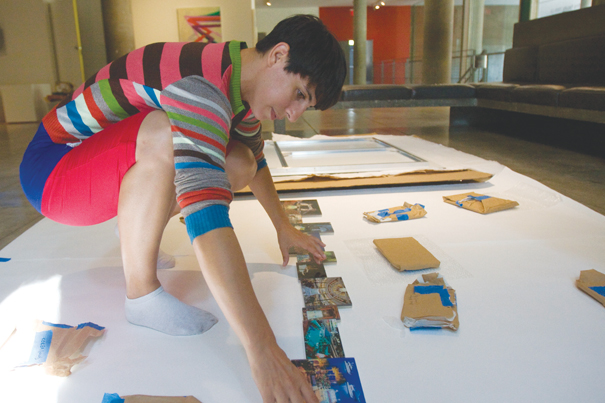
-
Norton Lectures interrogate the novel
Orhan Pamuk, winner of the 2006 Nobel Prize for literature, will deliver Harvard’s traditional Charles Eliot Norton Lectures, in a series of six talks on novels and novelists that begin Sept. 22.

-
The sound of music
Students perform and perfect their talents as they tap into a Harvard tradition.
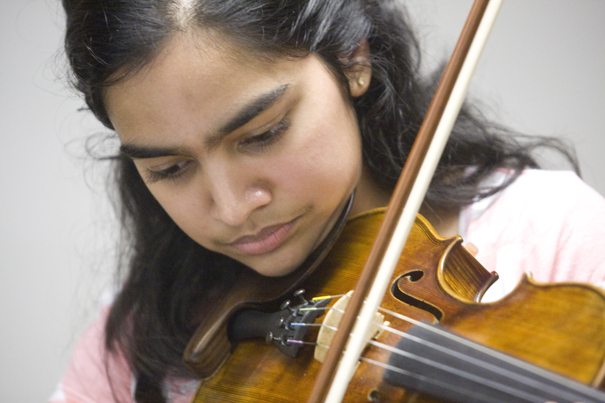
-
Justice for all
Michael Sandel, the Anne T. and Robert M. Bass Professor of Government, has authored a new book unpacking today’s most prevailing political and ethical quandaries.

-
Longfellow online exhibition recognized by ACRL
The ACRL Rare Books and Manuscripts Section has selected the online exhibition “Public Poet, Private Man: Henry Wadsworth Longfellow at 200” as a winner of the 2009 Katharine Kyes Leab and Daniel J. Leab “American Book Prices Current” Exhibition Award.
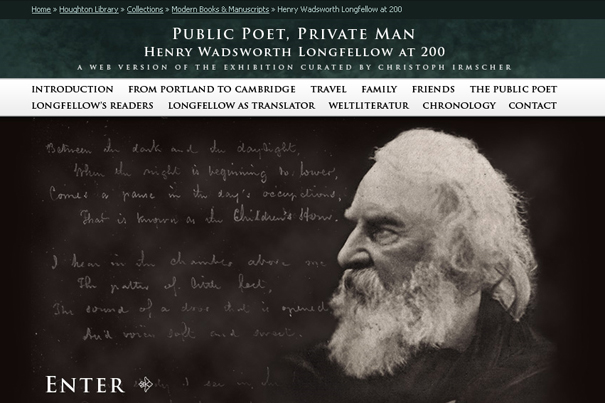
-
Harvard Film Archive acquires Just Film Stills
Lothar and Eva Just have recently made their collection of film stills and other publicity materials available to the Harvard Film Archive (HFA).
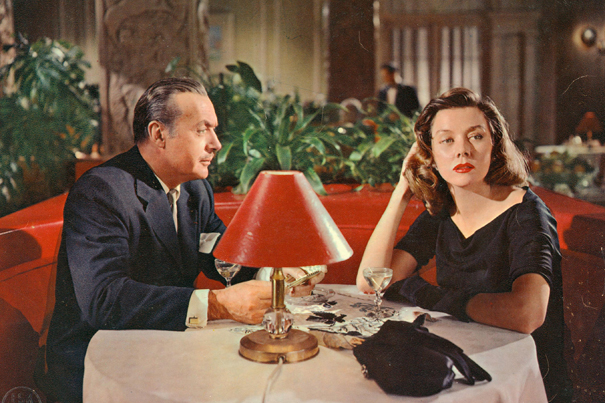
-
Oldest-known fibers to be used by humans discovered
A team of archaeologists and paleobiologists has discovered flax fibers that are more than 34,000 years old, making them the oldest fibers known to have been used by humans.

-
The Origins of Canadian and American Political Differences
Guns, government, same-sex marriage — the U.S. and Canada couldn’t be more dissimilar. Kaufman explores the history and culture of the two lands and asks why Canada is so close, yet so far away.
-
How Professors Think: Inside the Curious World of Academic Judgment
Lamont tells all in this behind-the-scenes work on the mysterious underpinnings of academia. Be in the room when the greatest thinkers meet behind closed doors and talk about how excellent excellence is.
-
Human Documents: Eight Photographers
Media maestro Robert Gardner presents this stunning array of photographs, or, “human documents,” which explore geography, culture, and our shared humanity through a universal visual language.
-
Up Close, part 2
In the fast pace of our daily lives we may overlook the details which, collectively, create a stunning backdrop for all that happens within the University. Hundreds of historic volumes stand as individual works of art inside the Houghton and Widener Libraries.
-
Johnson at 300
Harvard’s Houghton Library, home to a comprehensive collection related to 18th century English literature, sponsored a three-day international literary celebration of lexicographer, poet, essayist, and moralist Samuel Johnson, born 300 years ago this year. His work has inspired centuries of scholarship and generations of fervent ‘Johnsonians.’
-
‘The Donkey Show’ kicks off a first season for Diane Paulus
Harvard’s new American Repertory Theater director Diane Paulus ’88 takes a classic Shakespeare comedy for a spin on the disco floor with “The Donkey Show.”





